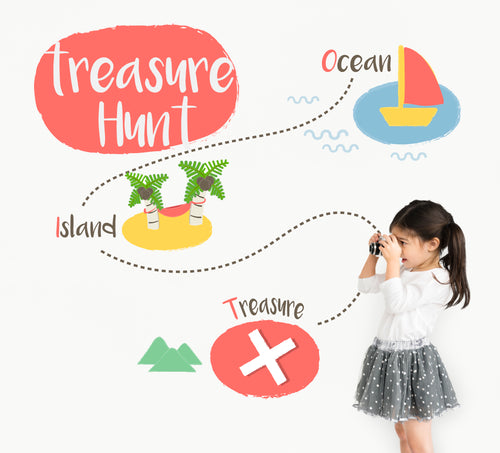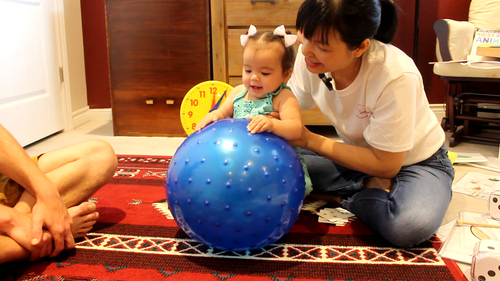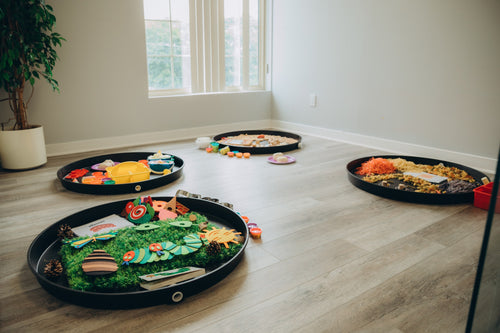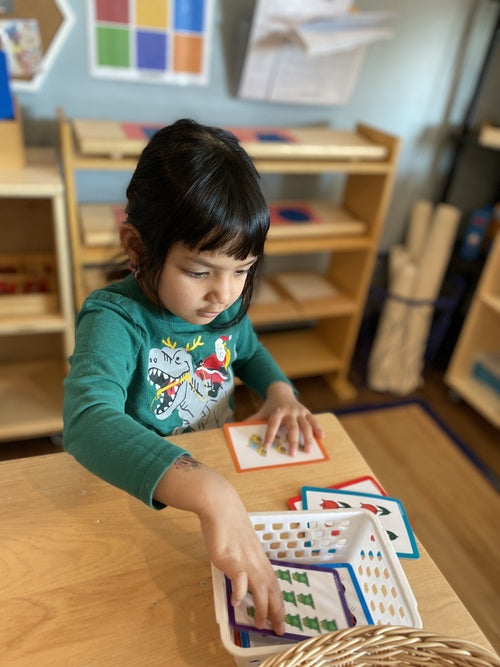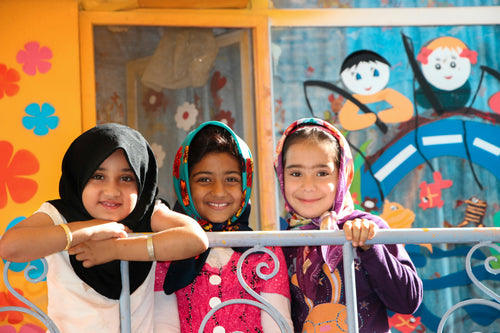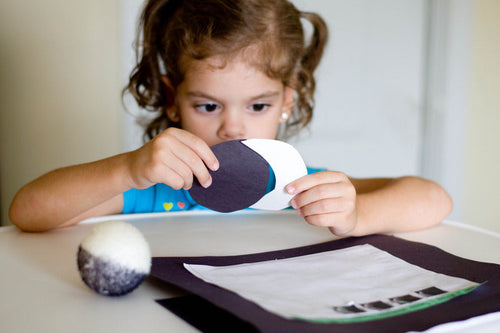Early learning plays a crucial role in shaping a child's development. During the infant and toddler stages, the brain is highly adaptable and forms neural connections at an astonishing rate. This period of rapid growth presents an ideal opportunity for parents and caregivers to introduce activities that stimulate cognitive, emotional, physical, and social development. Understanding the best activities for infants and toddlers is essential for fostering their learning and providing a strong foundation for future skills.
In this article, we will explore the benefits of early learning and offer practical, age-appropriate activities that engage infants and toddlers while promoting their development.
Why Early Learning Matters
The first few years of life are critical for brain development. Infants and toddlers are naturally curious and absorb information from their surroundings, learning from every interaction they have. During this time, children begin to form the building blocks of language, motor skills, problem-solving, and social-emotional understanding. Engaging them in stimulating activities helps lay the groundwork for more complex learning and prepares them for success in preschool and beyond.
The right activities for infants and toddlers can help them:
· Develop language and communication skills
· Enhance fine and gross motor abilities
· Build cognitive skills like memory, attention, and problem-solving
· Foster social and emotional awareness
· Strengthen the bond with caregivers
Best Early Learning Activities for Infants and Toddlers
Here are some age-appropriate activities designed to encourage early learning and stimulate key areas of development for infants and toddlers.
1. Sensory Play
Sensory play is a fantastic way for infants and toddlers to explore the world around them. It involves activities that stimulate the senses—touch, sight, sound, smell, and taste. Sensory experiences help children develop cognitive, motor, and language skills while enhancing their ability to make sense of their surroundings.
Activity ideas:
· Create a sensory bin with materials like rice, beans, or water beads for toddlers to explore textures.
· For infants, use soft fabrics, textured toys, or sensory balls for tactile stimulation.
· Introduce a variety of sounds using rattles, musical toys, or simple household objects like spoons and pots.
· Let toddlers play with safe, edible materials like mashed potatoes or yogurt to encourage exploration through taste and smell.
Sensory play also supports the development of fine motor skills as infants and toddlers grasp, squeeze, and manipulate objects, strengthening the muscles in their hands and fingers.
Book a sensory play session with us here.
2. Reading Aloud and Storytelling
Language development is one of the most important aspects of early learning. Reading aloud to infants and toddlers helps build vocabulary, introduces sentence structure, and nurtures a love of books. Even though babies cannot yet speak, they begin to understand words, rhythm, and tone through repetition and engagement with language.
Activity ideas:
· Read age-appropriate books with bright pictures, simple text, and repetitive phrases.
· For infants, choose soft cloth books or board books with bold images to capture their attention.
· Encourage toddlers to participate by pointing to pictures, turning pages, or repeating familiar words.
· Tell simple stories that involve characters, animals, or themes your child loves, using hand motions or expressions to make it engaging.
Storytelling helps develop imagination and communication skills in toddlers, laying the foundation for literacy and verbal expression. Repeating the same stories and books regularly helps infants and toddlers recognize patterns and increase their memory retention.
3. Music and Movement
Music and movement activities are a wonderful way to engage both the body and mind. Singing songs, dancing, and playing with musical instruments can enhance motor skills, rhythm, coordination, and auditory development in infants and toddlers.
Activity ideas:
· Play simple musical instruments like shakers, tambourines, or drums to help infants and toddlers learn about cause and effect.
· Sing songs with actions like “The Wheels on the Bus” or “If You’re Happy and You Know It,” encouraging toddlers to follow along with movements.
· Dance together to your child’s favorite music, allowing them to move freely or imitate your actions.
· Use toys that make sounds, such as rattles or xylophones, to engage infants in auditory play.
Music helps infants and toddlers develop listening skills and rhythm, while movement supports gross motor development, such as balance and coordination. Plus, these activities promote social bonding between parents and children.
4. Tummy Time for Infants
Tummy time is one of the best activities for infants during their early months. It helps build strength in the neck, back, and shoulders, which is essential for rolling over, crawling, and eventually walking. Tummy time also supports the development of motor skills and visual tracking as babies lift their heads and focus on objects around them.
Activity ideas:
· Place your infant on a soft mat or blanket for short periods throughout the day.
· Encourage them to reach for toys or objects placed within their line of sight.
· Use mirrors or brightly colored toys to keep them engaged during tummy time.
· Lie on the floor face-to-face with your baby to provide comfort and encouragement.
Start with just a few minutes at a time and gradually increase the duration as your baby gets stronger. Tummy time is a vital activity for building core strength and preparing infants for more advanced movements like sitting up and crawling.
Join our right brain community here to get more useful parenting tips.
5. Imaginative Play for Toddlers
Toddlers love using their imagination, and imaginative or pretend play is an excellent way to foster creativity, language development, and social skills. Through pretend play, toddlers can explore different roles, emotions, and scenarios, building a deeper understanding of the world.
Activity ideas:
· Set up a pretend kitchen, grocery store, or doctor’s office with toy props to encourage role-playing.
· Use stuffed animals or dolls to create simple stories where your toddler can take on different characters.
· Provide dress-up clothes and let your toddler pretend to be a firefighter, teacher, or superhero.
· Build a fort or playhouse where they can engage in make-believe adventures.
Imaginative play enhances problem-solving and decision-making skills, as toddlers learn to navigate different situations in a safe and creative way. It also promotes emotional development by allowing them to express their feelings through play.
6. Outdoor Exploration
Fresh air and outdoor exploration are vital for infants and toddlers’ physical and cognitive development. Nature provides endless opportunities for discovery and helps children improve their gross motor skills, coordination, and curiosity.
Activity ideas:
· Go for walks with your infant in a stroller, describing the sights and sounds around you.
· Let toddlers explore the backyard, picking up leaves, sticks, and rocks to engage their senses.
· Visit a park where toddlers can run, climb, and play on safe equipment.
· Introduce water play with sprinklers, small pools, or water tables for sensory stimulation.
Outdoor play encourages physical activity and helps infants and toddlers develop a connection to the natural world, all while improving their coordination and motor skills.
Smartizen: Supporting Your Child’s Early Learning Journey
At Smartizen, we are committed to helping infants and toddlers reach their full potential through whole-brain training that incorporates both structured and play-based activities. Our innovative programs are designed to stimulate the brain and nurture key skills like memory, concentration, language development, and physical coordination.
We offer a range of early learning activities, including sensory play, reading, music, movement, and imaginative play, all aimed at promoting well-rounded growth. Using methods like the Glen Doman technique, we ensure that your child is developing both the right and left sides of the brain, enhancing their overall learning ability.
Learn more about our whole-brain training methods here.
Whether you’re looking to enroll your child in a program or simply learn more about how to support their early development, Smartizen is here to guide you every step of the way.
Early learning for infants and toddlers is all about creating enriching experiences that engage their growing minds and bodies. By introducing sensory play, reading aloud, music and movement, tummy time, imaginative play, and outdoor exploration, you can foster your child’s development in a fun and meaningful way. Each of these activities helps stimulate the brain and body, building essential skills that will support your child as they grow.
Remember, infants and toddlers learn best through interaction with their caregivers, so be present, engaged, and encouraging. Whether you’re reading a book, singing a song, or exploring nature together, your involvement in your child’s early learning journey is invaluable.
By offering a variety of activities that challenge and excite, you will help your infant or toddler thrive, giving them the foundation they need for a lifetime of learning and discovery. Unclock your child’s full potential with Smartizen whole-brain training program here.


